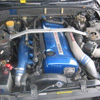Oil Analysis - Who Can Read The Results
Announcements
-
Similar Content
-
Latest Posts
-
Just a thought, but instead of restricting, is it possible to do like an "up for review" kind of thing? Where say someone who's not an admin/mod tags, it would require approval for it to actually tag? User posts with a 'tag' > Admin/Mod Reviews > Approves tag > Tag now exists kinda thing? Just came across this thread so Im not too sure if Im straying off topic or not but forgive me if i am...
-
Yes, a plan for non-action is always my first sort of plan! I'm happy to see what falls out of invision's update. I had been having some thoughts on what to do with this the other day and they all seem to have fled my memory, after various solar panel induced traumas, squeaking suspension sphericals, etc etc, over the last little bit. I'll try and recall what I had in mind and make sure that I put it into print in some form before the Alzheimer's strikes again.
-
The ability to have both a 5500 stall for launching, and a regular lockup for every other scenario is pretty sweet. Does it actually work well like that though in the real world? Would it hold up to track use and otherwise you'd never know you had a stall converter in it? If so, that's awesome
-
The thing is, once the content has been tagged we can chop and change the end result as much as we want. Its identifying the content in the first place that needs to be done regardless of the final outcome.
-
Sorry @GTSBoy I thought I'd replied here. There's a new BIG version of invision coming out soon, it might be worth waiting until that happens as it contains a lot of improved functionality for tags. My suggestion would be to add a top level page (not thread) with some info on it and then link to sub pages for various topics. We could even just start really simple with 2 or 3 pages underneath it. Those pages could just have a view (like a pre configured search result) of the tags we choose to put on it. We could have some background or an intro on each of these pages. My only issue is that while admins and mods can update the existing content to contain the tags we want, new posts can have whatever tags the author wants. That said, the reason our tags are so messy is because of that, so maybe we restrict tagging to admins/mods in edits.
-







Recommended Posts
Create an account or sign in to comment
You need to be a member in order to leave a comment
Create an account
Sign up for a new account in our community. It's easy!
Register a new accountSign in
Already have an account? Sign in here.
Sign In Now